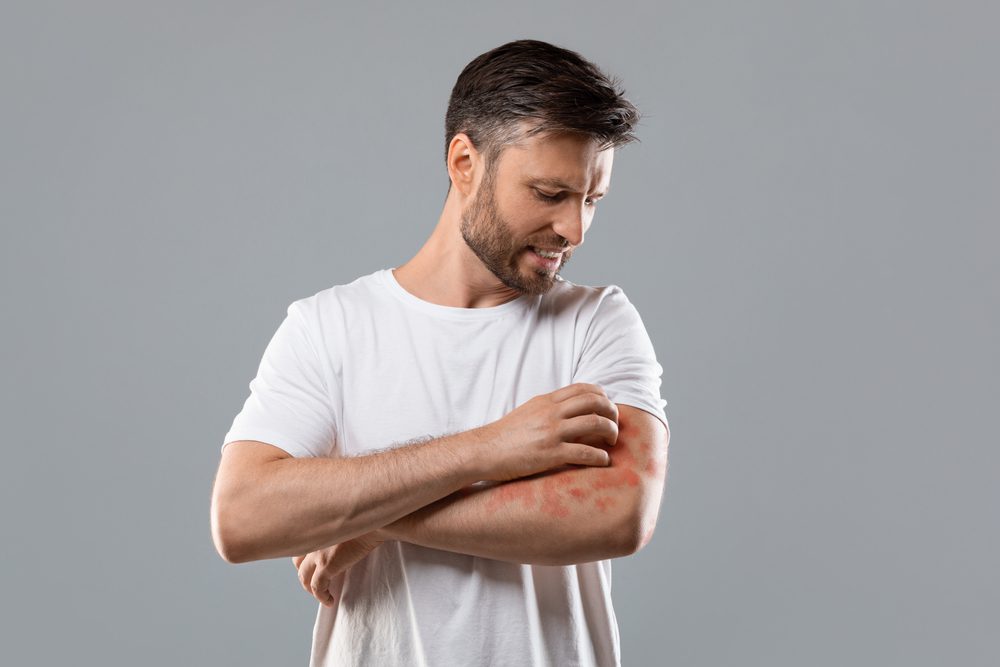According to reporting from Healio Psoriatic Disease, the Food and Drug Administration (FDA) recently updated the label for Dupixent (dupilumab) in the indication of moderate-to-severe atopic dermatitis with moderate-to-severe hand and/or foot involvement. Dupixent is a monoclonal antibody that blocks interleukins 4 and 3 (IL-4 and IL-13) to treat a variety of allergic and inflammatory conditions.
The updated label reflects safety and efficacy data from the Phase 3 LIBERTY-AD-HAFT study. 133 participants ages 12 or older enrolled in the study. All participants had diagnosed atopic dermatitis whose hand and/or foot involvement was poorly controlled. Atopic dermatitis that involves the hands and feet can be challenging to deal with; as we so often use our hands and feet, people with hand and/or foot involvement often experience chronic itching, pain, and discomfort that can impair quality-of-life.
Participants were split into two groups: one of which received Dupixent and the other which received a placebo. Altogether, 67 participants were treated with either 200mg or 300mg Dupixent (depending on age). The study found that Dupixent treatment meaningfully reduced lesions on the hands and feet. 40% of individuals treated with Dupixent had clear or almost clear skin and 52% experienced reduced itchiness, compared to 17% and 14% of those receiving the placebo, respectively. Dupixent was found to still be both safe and effective, with the most common adverse reactions being atopic dermatitis and the common cold.
The Dupixent label update will also occur in the European Union (EU).
About Atopic Dermatitis
Atopic dermatitis is a chronic inflammatory condition that you might know as eczema. This condition causes dry, itchy skin that weeps clear fluid when scratched. Although the skin might weep fluid, it is important to note that atopic dermatitis is not contagious. You cannot catch atopic dermatitis from someone else. An estimated 30% of people in the United States have atopic dermatitis. An estimated 30-40% of people affected have moderate or severe atopic dermatitis. People with this condition are also more likely to have other allergic conditions like food allergies or asthma.
What causes this condition? The answer here is somewhat unclear. Doctors believe that there’s a blend of environmental or genetic factors that contribute. The immune system can overreact to triggers like infections, certain dyes or fragrances, irritating chemicals, stress or heightened emotions, or cold, dry air. If you’re looking to reduce triggers and find relief, consider these tips from the American Academy of Dermatology (AAD) Association.
Because the skin may open and weep, people with this condition have a higher risk of developing viral, fungal, or bacterial skin infections. Additional symptoms include:
- Redness and inflammation
- Intense itchiness
- Dry, scaly skin that is prone to cracking
- Skin color changes in the affected area(s)
- Fluid-filled blisters
- Fatigue
Those affected by this condition also report heightened levels of stress, depression, anxiety, and sleep disturbances.






